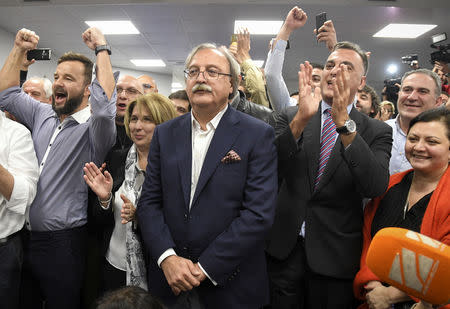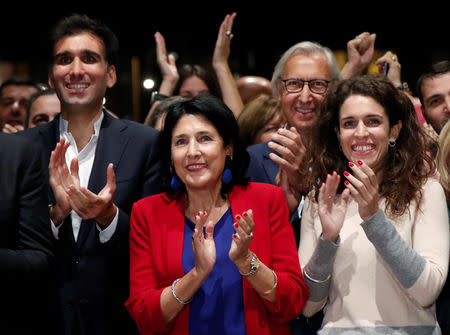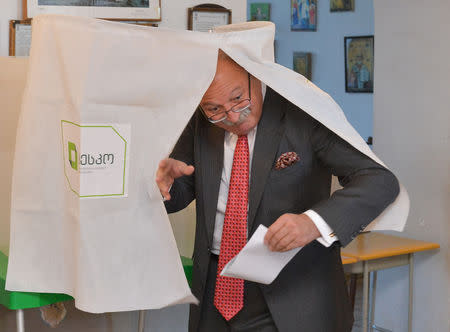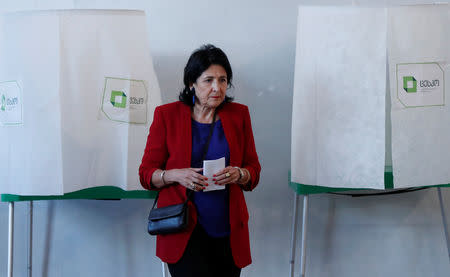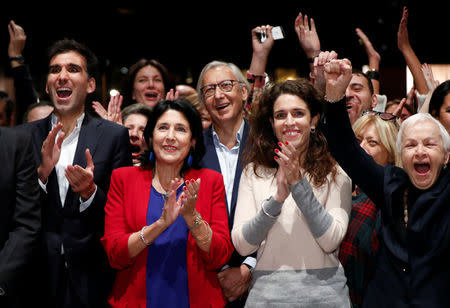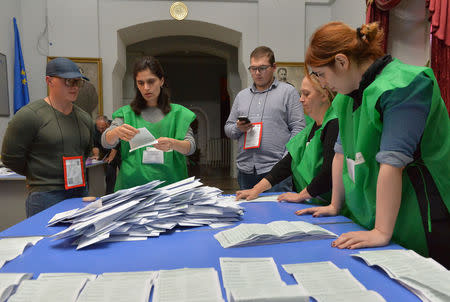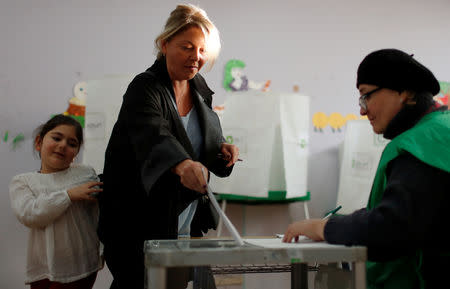Georgia presidential election poised for runoff
By Margarita Antidze
TBILISI (Reuters) - Georgia's presidential election looked likely to go to a second round as early official results on Sunday showed neither of the frontrunners with enough votes to secure victory.
French-born ruling party candidate Salome Zurabishvili had 43.2 percent of the vote and her opposition rival Grigol Vashadze won 34.7 percent based on results from 28 percent of the polling stations, the Central Election Commission (CEC) said on its website.
"It's evident now that there will be the second round between Salome Zurabishvili and Grigol Vashadze," Irakly Kobakhidze, the ruling party executive secretary, told reporters.
The second round of voting will occur no later than Dec. 1.
A poll commissioned by independent television station Rustavi-2 suggested Zurabishvili, a former French career diplomat who served as Georgia's foreign minister from 2004-2005, was neck in neck with Vashadze, another former foreign minister who is backed by an opposition coalition.
That poll predicted that no candidate would win more than 50 percent of the vote and the two would face a run-off.
Candidate David Bakradze, former parliamentary speaker who trailed the frontrunners, said he would support Vashadze in the second round.
Zurabishvili, 66, was born to Georgian emigre parents in France and served as French ambassador to Georgia before becoming Georgia's foreign minister.
Supporters say she would bring international stature to the presidency; opponents criticise her for statements that appeared to blame Georgia for war with Russia in 2008, remarks about minorities that some saw as xenophobic and unsteady command of the Georgian language, which she speaks with an accent.
Zurabishvili was invited into Georgian politics by former President Mikheil Saakashvili, who gave her Georgian citizenship to head his foreign ministry but sacked her after a year. She then set up her own opposition party, which she led until 2010 before temporarily quitting politics and returning to France.
She was elected to Georgia's parliament in 2016 with the backing of Georgian Dream, a party controlled by Bidzina Ivanishvili, the country's richest man, whose critics say he rules Georgia from behind the scenes.
Constitutional changes have weakened the power of the presidency, putting most authority in the office of prime minister.
But the post is still seen as important for the image abroad of a country strongly oriented towards the West and fearful of Russia, which invaded a decade ago and backs separatists in two breakaway regions.
Sunday's election was the last in which the president will be selected by popular vote; after that, presidents will be picked by an electoral college of 300 lawmakers and regional officials.
The country of 3.7 million people is Washington's strategic ally in the Caucasus region between the Black Sea and Caspian Sea and hopes eventually to join the EU and NATO. Pipelines carrying Caspian oil and gas to Europe run across its territory.
(Editing by Peter Graff and Cynthia Osterman)
